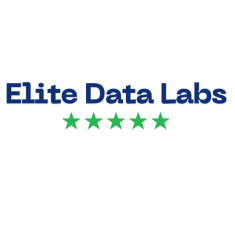
NLP Annotation Services
What is NLP Annotation and Why Does it Matter?
NLP Annotation is the process of labeling and structuring text data so machine learning models can understand, process, and generate human-like language.
Think about a chatbot trained to understand customer queries. If the intent behind phrases like “I need help” and “Tell me how to reset my password” isn’t annotated correctly, the chatbot may fail spectacularly.
Types of NLP Annotations We Offer:
- Entity Recognition: Tagging names, dates, and key entities in text.
- Sentiment Annotation: Identifying emotional tone in customer reviews.
- Intent Detection: Recognizing user goals in chatbot datasets.
- Token Classification: Labeling individual words with their grammatical roles.
- Text Classification: Grouping text into categories (e.g., spam vs. not spam).
We’ve refined our NLP annotation workflows to address domain-specific challenges and ensure datasets are accurate, context-aware, and ready for production.
Why Do Many NLP Projects Struggle to Achieve Accuracy?
Natural Language Processing (NLP) lies at the heart of chatbots, virtual assistants, search engines, and sentiment analysis tools. Yet, despite its critical importance, many NLP projects fail to meet expectations. Why?
- Ambiguous Text Data: Human language is inherently complex, filled with context, idioms, and double meanings.
- Inconsistent Annotations: Variability in annotators’ interpretations leads to dataset noise.
- Domain Expertise: Technical and industry-specific text requires annotators with contextual understanding.
- Scalability Challenges: Large-scale NLP projects often outpace annotation resources.
We’ve addressed these pain points head-on by combining expert human annotators, advanced annotation tools, and a robust quality assurance system to deliver highly accurate NLP datasets.
🛠️ 2. How We Approach NLP Annotation Projects
Delivering high-quality NLP datasets requires more than just assigning labels. Our approach is systematic, scalable, and tailored to each client’s requirements. However, in general, this is how we approach NLP annotations from the moment we receive a project.
🔍 Step 1: Data Preprocessing and Cleaning
- W have annotators whose sole job is to ensure raw text is cleaned and standardized (e.g., removing duplicates, handling special characters).
- Contextual ambiguities are identified and addressed upfront.
📝 Step 2: Annotation Guidelines Development
- We collaborate with clients to develop clear annotation guidelines.
- Guidelines include examples, edge cases, and specific requirements for each label type.
🧠 Step 3: Expert Annotator Assignment
- Annotators with domain expertise (e.g., medical, legal, customer support) are assigned. As earlier mentioned, we like to assign projects based on the annotator’s domain expertise.
- Complex projects may involve specialized training sessions for annotators.
🛡️ Step 4: Multi-Tier Quality Assurance
- First Review: Initial annotations are checked for consistency.
- Peer Review: Cross-validation by another annotator.
- Final Validation: Senior reviewers ensure accuracy aligns with project goals.
📊 Step 5: Client Feedback Integration
- Regular feedback loops ensure any concerns are addressed early.
- Annotation guidelines are refined based on feedback.
🚀 3. Key Challenges in NLP Annotation (and How We Solve Them)
🔹 Challenge 1: Ambiguity in Language
- The Problem: Words can have multiple meanings depending on context (“bank” as in riverbank vs. financial bank).
- Our Solution: Annotators are trained to use context clues and follow strict guidelines to minimize misinterpretation.
🔹 Challenge 2: Domain-Specific Text
- The Problem: Medical, legal, or technical text requires domain expertise.
- Our Solution: Annotators are assigned based on specialized knowledge and training.
🔹 Challenge 3: Scalability in Large NLP Projects
- The Problem: Managing thousands or millions of text samples efficiently.
- Our Solution: Cloud-based infrastructure and automated task allocation systems enable seamless collaboration across global teams.
🌟 4. Why Choose Aidatalabelers.com for NLP Annotation?
With years of experience in AI data annotation, we have fine-tuned our NLP annotation services to deliver datasets that are accurate, scalable, and production-ready.
✅ Domain Expertise
- We have annotators trained in critical fields such as healthcare datasets, legal documentation, financial text, and chatbot data.
✅ Advanced Tools and Technology
- Custom NLP Annotation Platforms: Tailored to text-based datasets.
- AI-Assisted Tools: This helps us automate token labeling and entity recognition.
✅ Multi-Tier Quality Control
- Every dataset passes through three layers of validation, ensuring the highest level of accuracy.
✅ Scalable Teams
- Flexible workforce that can scale quickly to meet project demands. Our annotators are not just American; we have highly trained annotators across Kenya, India, and the Philipines.
✅ Cost Efficiency
- Competitive pricing without compromising on dataset quality. Try us on the pricing!
📊 5. Real-World Case Study: Improving Chatbot Accuracy Through NLP Annotation
Client: Leading E-commerce Chatbot Provider
Challenge: Chatbot struggled with user intent recognition, leading to incorrect responses.
Solution: Annotated 500,000 chatbot interactions, focusing on intent classification and entity tagging.
Results:
✅ 25% improvement in chatbot response accuracy
✅ 35% reduction in user complaints
✅ Faster model retraining cycles
“Aidatalabelers delivered highly accurate NLP datasets that transformed our chatbot’s ability to understand users.”
🙋 6. Frequently Asked Questions (FAQs)
1. What industries do you specialize in for NLP annotation?
- Healthcare, finance, legal documentation, customer support, and e-commerce.
2. How do you ensure annotation accuracy?
- Through multi-tier QA processes involving peer reviews and final validations.
3. Can you handle sensitive or confidential text datasets?
- Yes, we are fully compliant with GDPR, HIPAA, and CCPA regulations.
4. How quickly can you start a new NLP annotation project?
- Most projects can kick off within 48 hours of finalizing requirements.
🔗 7. Ready to Build Smarter NLP Models?
At Aidatalabelers.com, we don’t just label text – we create language datasets that drive smarter AI systems.
- 🚀 Request a Free Dataset Sample Today
- 📞 Book a Consultation with Our NLP Experts
- 📧 Contact Us Now!
